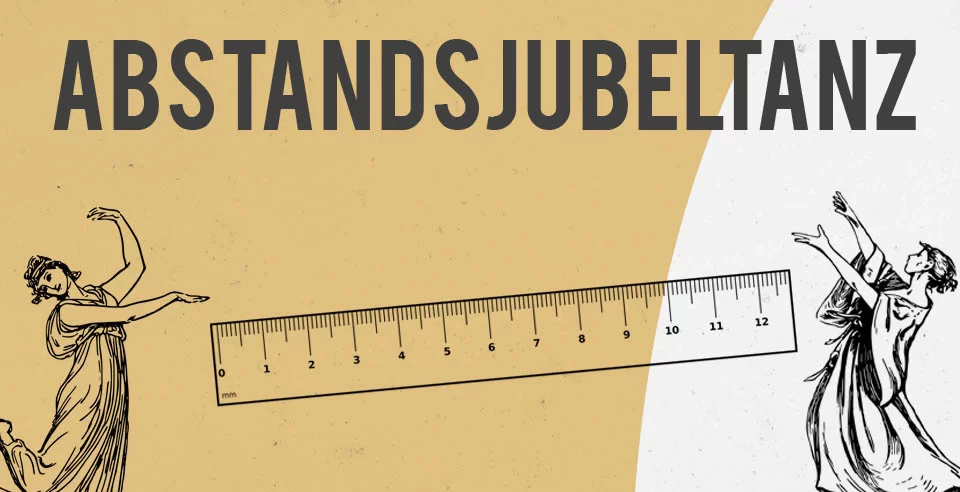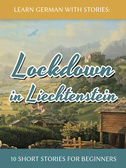After more than one year in the grip of a global pandemic, our daily lives have changed extensively. The way we work, travel, socialize and decompress have all undergone strange transformations. And these changes have begun to be reflected in the way we use language.
The Leibniz Institute for the German Language, an organisation for documenting and researching contemporary German language, has published a list of 1,200 brand-new pandemic-related German words. The German language is infamous for its long expressive compound nouns, so it’s no surprise that the pandemic has spurred the creation of many more.
Most of these words are related to the never-ending logistic and bureaucratic nightmare of managing individuals and society at large, such as the common “Mindestabstandsregelung” (minimum distance rule), the obligatory “Spuckschutztrennwand” (spit guard separation wall) or Angela Merkel’s own “Wiedereröffnungsorgien” (re-opening “orgies”).
In this article however, I’d like to focus on new German words that express some of the emotional, social and psychological realities of life under the coronavirus. We may not always be able to control what happens to us, and the sheer weight of such a crisis can be crushing and make us feel powerless, but finding creative new ways to talk about it can sometimes be a form of coping and empowerment. The following 10 words are a testimony to that creative spirit of language.
der Abstandsjubeltanz
“distance celebration dance”
“rhythmical body movements in order to express happiness, in keeping with COVID-19 distance recommendations”
When receiving the good news about a promotion, child-birth, wedding, etc. pre-covid human beings used to celebrate with high-fives, hugs and kisses. In times of corona, we celebrate by flailing with arms and legs, safely distanced of course, whether by screen or the physical Mindestabstand.
das Abstandsbier
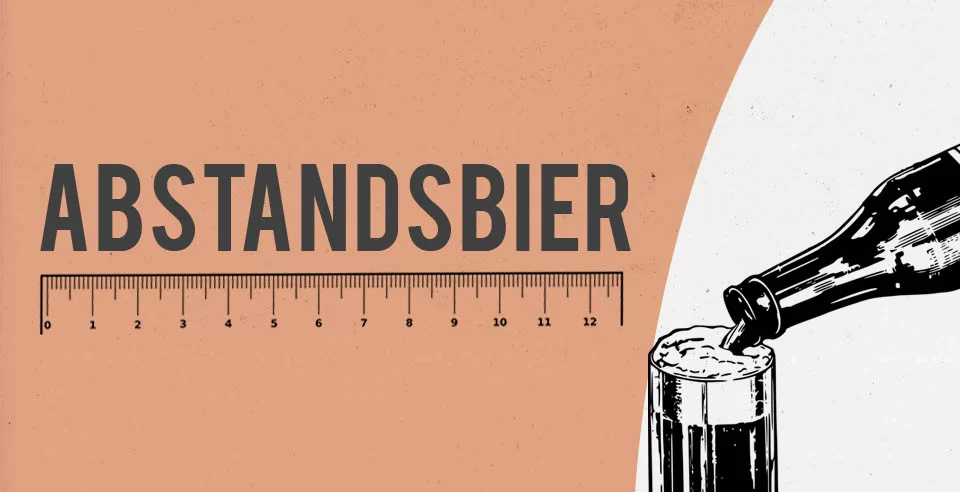
“distance beer”
“a beer which is enjoyed with others, in keeping with COVID-19 distance recommendations.”
Like in many other countries, the communal consumption of alcohol is of utmost importance in Germany; a great equalizer and social lubricant. But when all pubs have closed and you still want to meet for a beer with a friend, whether outside or on screen, it’ll have to be an Abstandsbier. Prost!
der Balkonklatscher
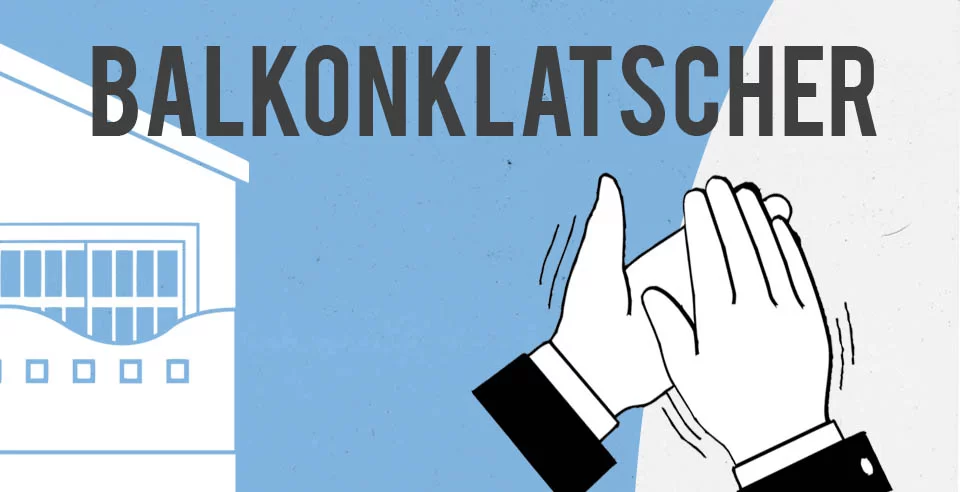
“balcony clapper”
“(often derogatory) for person who professes solidarity and acknowledgement for persons working in highly demanding or systemically relevant occupations, from open spaces by smacking their hands together.”
This new German word follows the mold of jesty German insults like Warmduscher (warm-showerer), Altpapiersammler (recyled paper collector) or Backofenvorheizer (oven pre-heater), where a seemingly inane activity such as taking a warm shower is personified into a noun to imply a personal weakness (often ironically). Some of these nouns outgrew their original denotation so that Warmduscher for example simply now means wimp.
The new Balkonklatscher is more complex. While it literally describes the person expressing gratitude from their balcony, it actually refers to the anger and frustration of nurses, doctors and social workers struggling with extreme strain and underwhelming salaries whom this applause doesn’t help one iota.
der Hygieneritter
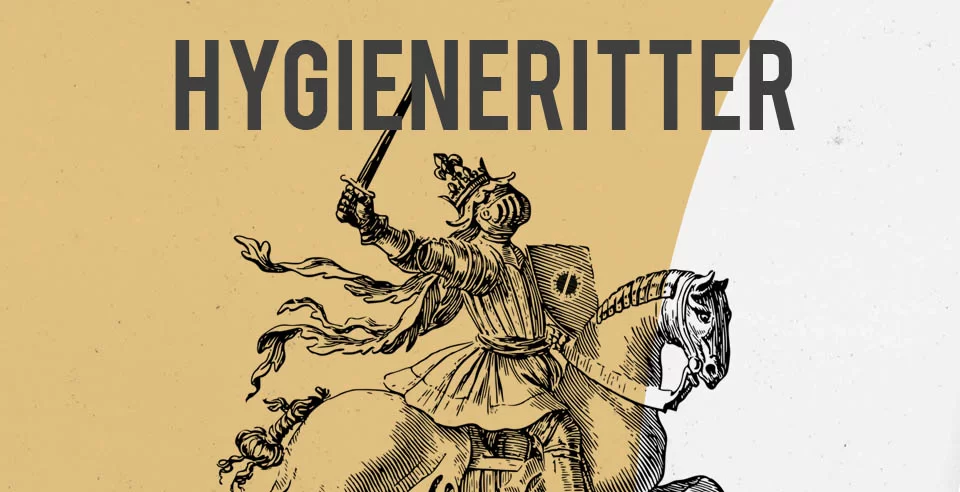
“hygiene knight”
“(jokingly) for someone who honorably, patiently and conscientiously adapts his behavior according to the hygiene measures during the COVID-19 pandemic.”
This honorable knight doesn’t rescue damsels in distress nor does he fight with fiery dragons. His mortal enemy is approximately 50–200 nanometres in diameter, and his weapons of choice are hand sanitizer and staying at home. Pax vobiscum!
die Coronaausrede
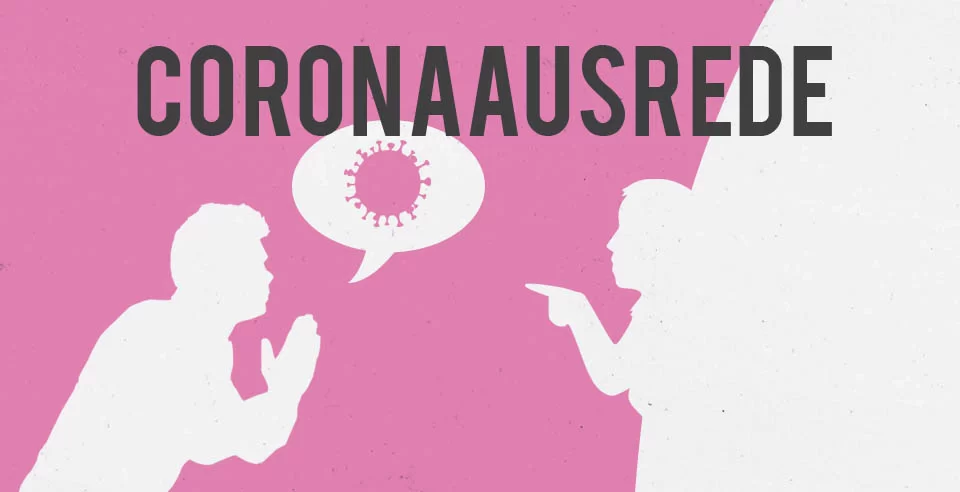
“corona excuse”
“(not always entirely serious) justificatory statement to explain personal misconduct due to the COVID-19 pandemic or measures taken against it.”
Who would have guessed that a global pandemic supplies a whole gamut of new excuses for social and moral conduct? Don’t want to meet the in-laws? — “Sorry, it’s for their own safety.” Got caught while illegaly partying? — “All these people? Why, they are part of my extended family!”
In one incident in Cologne for example, a hit-and-run bicycle rider when asked why she’d escaped the scene of the accident instead of helping the person she’d crashed into, apparently claimed: “In times of Corona I can’t help anyone.”
der Lockdownspeck
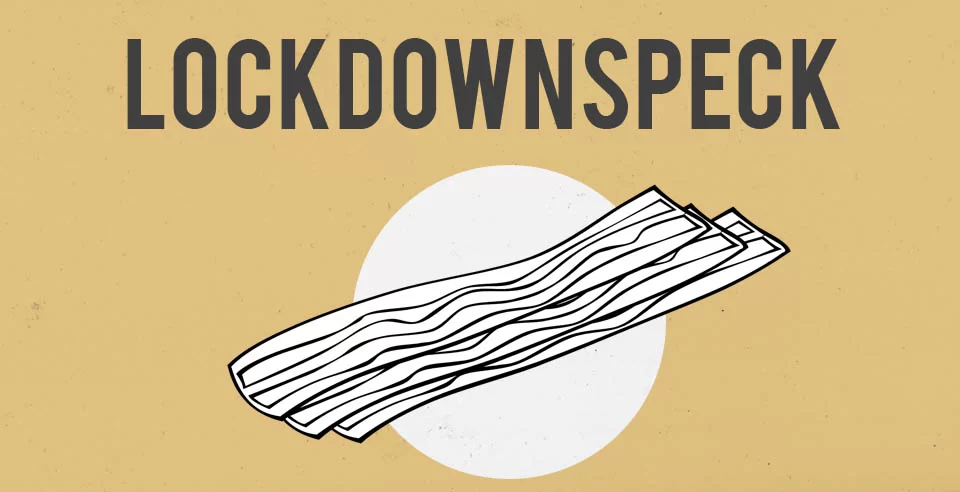
“lockdown bacon”
“increased body weight due to lack of movement, boredom, stress, etc. during the COVID-19 pandemic”
You may already know the famous German Kummerspeck (“grief bacon”) which describes the increase of body fat due to sorrow or grief (often) caused by romantic troubles. Lockdownspeck or Coronaspeck is its pandemic-related cousin.
die Niesscham
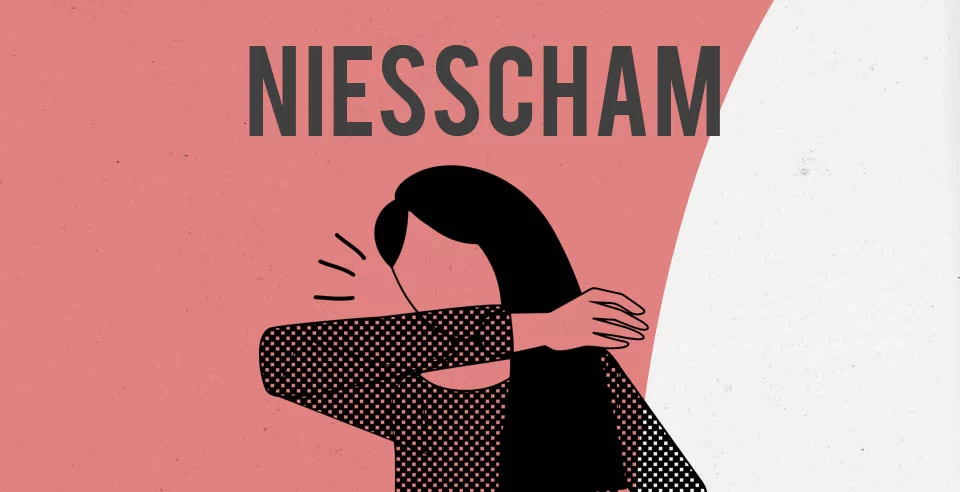
“sneeze shame”
“uncomfortable agonizing feeling when having to sneeze in public”
This one follows the same principle of Flugscham, which describes the shame (or being shamed) for continuing to fly everywhere despite being aware of the negative environmental impact. Since the pandemic has killed international travel, at least that’s one shame less to worry about.
das Todesküsschen
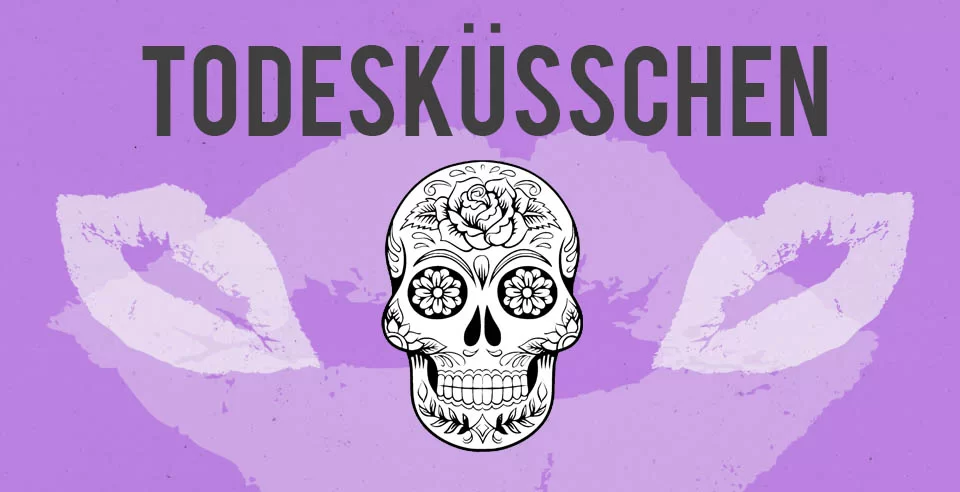
“little kiss of death”
“touching other people’s cheeks with one’s lips (as a greeting), which can cause higher infection and death risk”
The culture of dealing out kisses on the cheek as a greeting originally crept up to the North from Southern Europe. In some parts of Germany and France two kisses are the custom, starting with the right cheek. But what once used to be an affectionate (or dreaded) pattern of socializing has now become the (little) Kiss of Death.
der Virusverharmloser
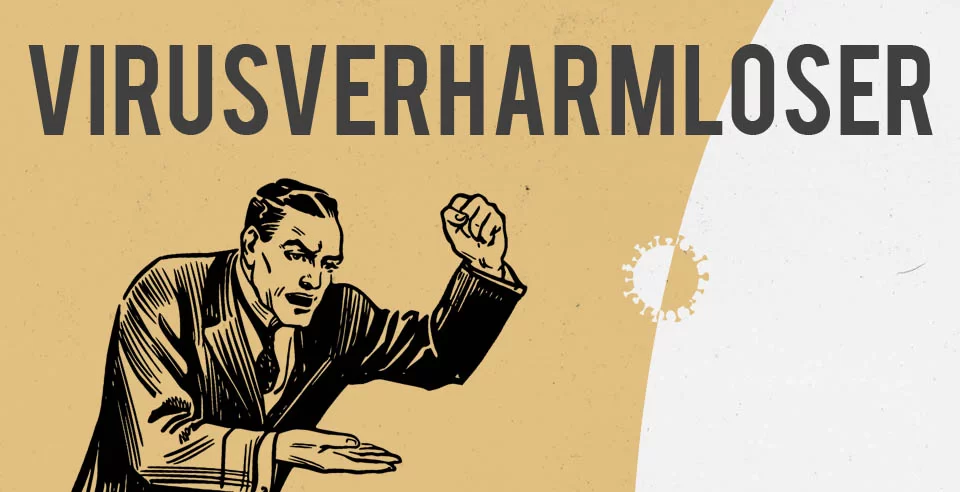
“virus downplayer”
“person who deems a pathogen (and the threat resulting from it) as non-existent or non-threatening”
This one is reminiscent of and probably most definitely related to the classic Gehirnverweigerer, the person who refuses to use one’s brain.
der Wirrologe
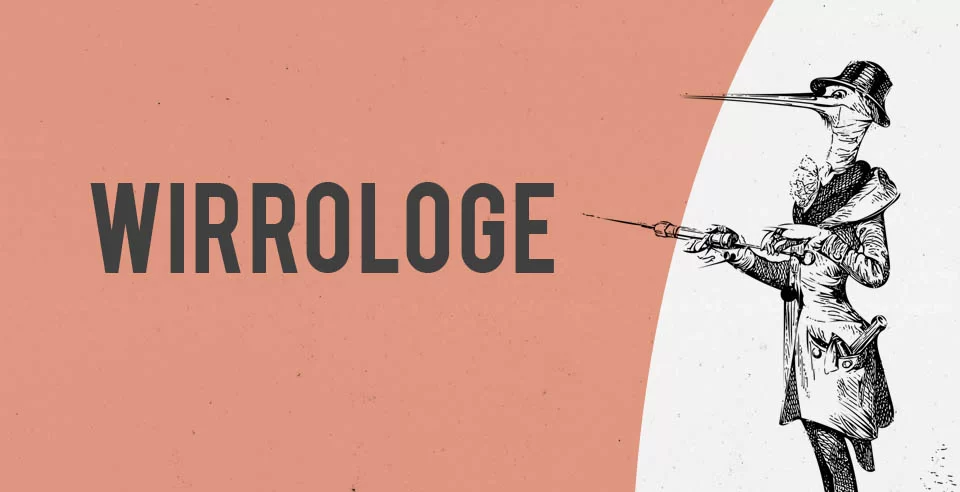
“craze-ologist”
“(derogatory) for person whose statements about a pathogen are deemed exaggerated, contradictory or unscientifc.”
The German word “wirr” means “confused, crazed, tangled, etc.” Over the past year the insult Wirrologe has interestingly been used by both covid-deniers while referring to actual virologists, and by regular people to describe self-appointed experts or dubious scientists railing against reality.
Which are your favorite new German corona words? Browse through the list and let me know in the comments!
–

